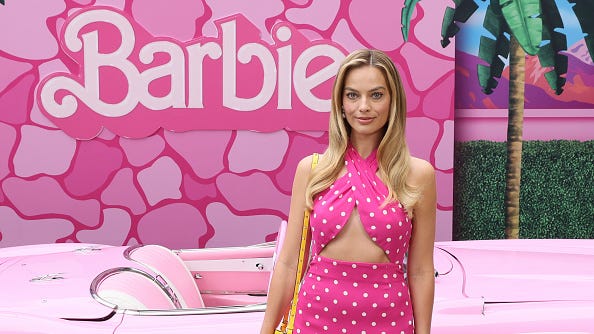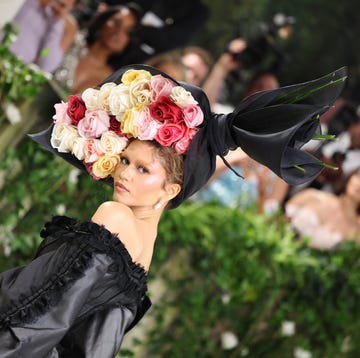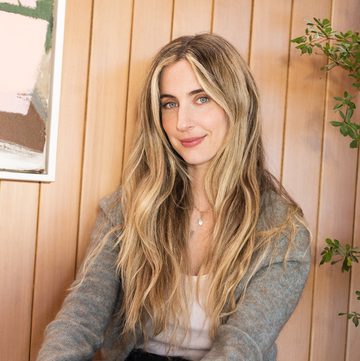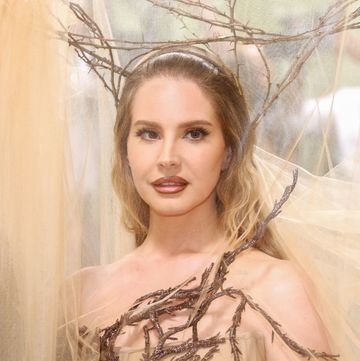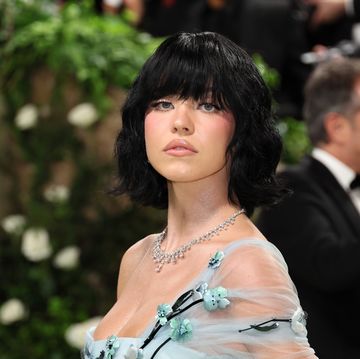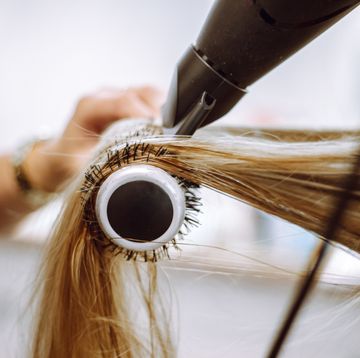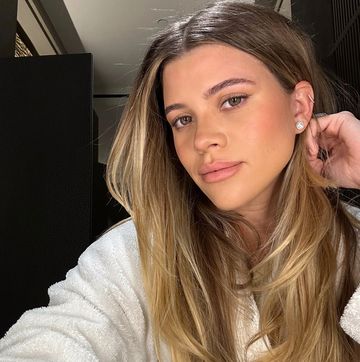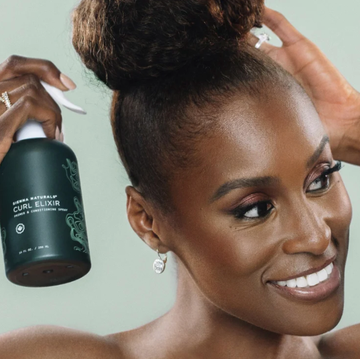One of the most fraught decisions a Black woman must make before her first day at a new job is what to do with her hair. Should it be blown straight, worn natural, or braided? It should look “nice,” certainly, but in whose eyes? These thoughts, superficial though they may seem, are calculating the consequences of making the wrong move. Hair is just hair, but for some Black women in the workplace or even Black children at school hair is also a reason that they might be fired or expelled.
It’s not uncommon for workplaces and schools to maintain dress and appearance guidelines. However, unlike clothing, which can be swapped out, hair is a living part of you, and it looks different from person to person. From there, styles—braids, locs, Afros, twists, Bantu knots, and cornrows—are often antithetical to institutional and arbitrary grooming rules. In fact, sometimes these styles prevent admission altogether. A 2020 Duke University study found that Black women with natural hairstyles were perceived to be less professional and less competent, and were less likely to be recommended for job interviews than their white counterparts. Even among Black women, those with natural hairstyles were rated as less professional than Black applicants with straightened hair.
And in schools, where there should be no expectation of so-called professionalism, children have been penalized for wearing natural hairstyles too. Before the pandemic upended a Texas school’s plans for its senior prom and graduation, De’Andre Arnold was told he couldn’t attend because his locs were too long. And if you think that kind of retaliation is rare, consider the video that went viral in December 2018, in which a 16-year-old wrestler in New Jersey was pressured by a referee to undergo a haircut prior to a match in order to be able to participate.
These policies sound discriminatory, but are they legal? In many states, yes. That’s why in July 2019 California Governor Gavin Newsom signed into law The CROWN Act, an acronym for Creating a Respectful and Open World for Natural Hair. (California was the first state to ban this kind of pervasive racism.) Implemented earlier this year, the measure prohibits schools and workplaces from discriminating against people based on their natural hairstyles. “Hair remains a rampant source of racial discrimination with serious economic and health consequences, especially for Black individuals,” the act reads. “Continuing to enforce a Eurocentric image of professionalism through purportedly race-neutral grooming policies that disparately impact Black individuals and exclude them from some workplaces is in direct opposition to equity and opportunity for all.” “I wore braids in high school in the ’80s without backlash,” says California State Senator Holly J. Mitchell, who authored the CROWN legislation. “I cannot imagine how the trajectory of my life would have changed if my choice to wear my hair natural had not been allowed,” she says. “I reviewed countless court cases lost by Black men and women who were either fired, not hired, or failed to receive promotions due to their natural hair.”
Of course, not every injustice becomes a statistic. The CROWN Act isn’t an end-all solution to the subtler forms of discrimination people face when it comes to hair, which are not always as public and can manifest in different ways across a range of fields, from retail to banking to the service and hospitality industries. These kinds of prejudice are so widespread that a 2019 survey commissioned by Dove found that a Black woman is 80 percent more likely to change her natural hair to meet social norms or expectations at work than a white woman. As any patron of a Black salon or barbershop knows, Black hair has always been a source of pride. “More and more requests are coming in for natural styles,” says hairstylist Nai’vasha, who created the looks on these pages. “I think the shift began about five years ago, when more of Hollywood started to embrace their natural beauty.” In 2016, interdisciplinary artist Shani Crowe introduced New Yorkers to “Braids,” an exhibition of black-and-white photos of her gravity-defying marvels at the Museum of Contemporary African Diasporan Arts. In one work, Fingerwave Saint, the braids are constructed into a spoked halo. Solange would later wear a version of this style during a Saturday Night Live performance, and again at the Met Gala in New York in 2018. Around this time, Laetitia Ky began sharing her natural hairstyles on Instagram, where she fashions her locs in surrealist scenarios: In one photo, the ends of her locs take the form of hands and strum a guitar, while in another they spell out “BLM.”
Think of Issa Rae with her braids, cornrows, and brushed-out curls in Insecure, or Michael B. Jordan separating Tessa Thompson’s twists in Creed. This month, Hulu premieres the satirical horror film Bad Hair, in which a haunted weave goes on a killing spree after a Black woman installs it to get ahead at work.
There’s still more to be done. Since California, CROWN legislation has been adopted in an additional six states, including New York, and seven other states are considering their own anti-racist hair discrimination bills. Conversely, 17 states have voted against CROWN legislation. Senator Mitchell says that “while there are approximately 700 Black state legislators nationwide, we constitute a fraction of the tens of thousands of state policymakers. As a result, it is imperative that if we are going to see more states than the seven that have currently passed The CROWN Act, we will need our allies to step up and acknowledge that hair discrimination is discrimination and has no place in the workplace or schools.”
While legislation lags, culture marches forward. This past February, Hair Love, a seven-minute film that follows the trials and tribulations of a young Black girl styling her hair with the help of her father, won the Oscar for Best Animated Short. “On the surface it may feel like a frivolous thing,” says writer-director Matthew A. Cherry, “but Black hair is Black people. When you have to hide a part of yourself or adjust it to feel like you fit in, you don’t feel like you can be your entire self.” In his acceptance speech, Cherry advocated for the CROWN Act, and gave a shoutout to his guest for the night, De’Andre Arnold, who, this August, scored a win of his own: A judge ruled that his school district’s hair policy was discriminatory.
Model: Azu Nwogu; Hair: Nai’vasha for Oribe; Makeup: Raisa Flowers for Pat McGrath Labs; Manicure: Honey for Smith & Cult; Production: Emilie Esther Pitts for Anne du Boucheron Inc.; Prop Styling: Colin Lytton.






